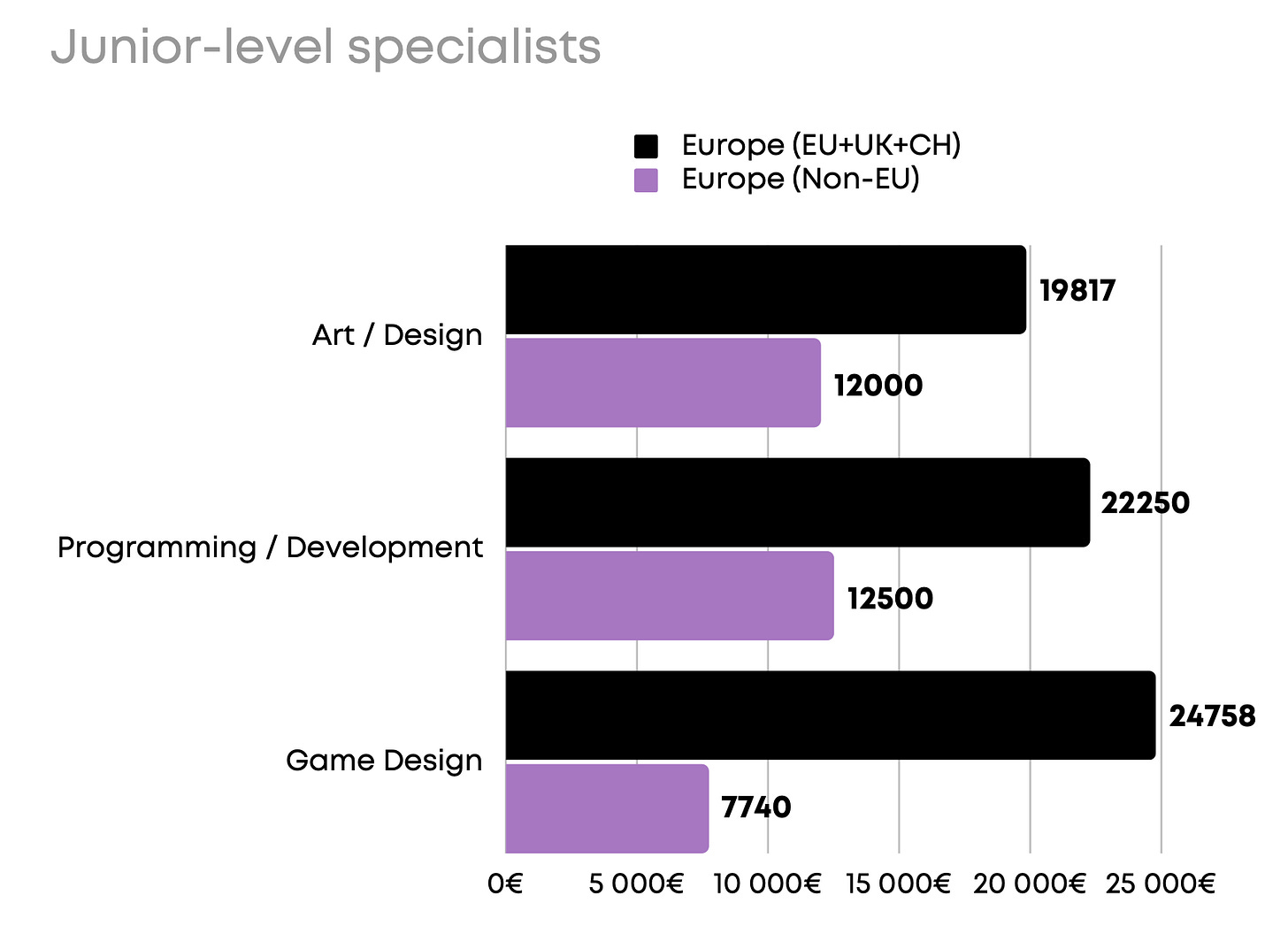Values Value & inGameJob: European Game Industry Employment Study in 2023
Salaries benchmarks; employees satisfaction & other interesting topics.
The survey was conducted from March to June 2023. It involved 1,610 respondents from 78 countries. All salaries are gross annual earnings in euros, and all figures are median values.
The company employs two classifications: Europe (EU + UK + CH), which includes countries within the European Union along with the United Kingdom and Switzerland, and Europe (non-EU), which includes countries outside the European Union (Armenia, Belarus, Georgia, Moldova, Bosnia and Herzegovina, Montenegro, Serbia, Ukraine).
Entry-Level Specialists
Junior-level specialists in Europe (EU + UK + CH) earn annual salaries ranging from 19,817 to 24,758 euros. In countries outside the European Union, the salary range is significantly lower, from 7,740 to 12,500 euros. These figures represent yearly salaries.
Mid-Level Specialists
The median salary for mid-level specialists in European Union countries, the United Kingdom, and Switzerland ranges from 16,080 to 36,900 euros per year. QA/testers are paid the least, while analysts receive the highest salaries.
Outside the European Union, the median salary range is between 16,800 and 29,000 euros per year. Interestingly, QA/testers are paid more in these countries.
On average, median salaries in non-EU countries are 5-30% lower.
High-Level Specialists
Salaries in European Union countries, the United Kingdom, and Switzerland range from 46,000 to 75,600 euros. The median salary for top management is 84,000 euros per year.
In European countries outside the EU, median salaries range from 30,000 to 62,568 euros, with top managers earning 66,000 euros per year.
Financial Bonuses from Companies
The most common bonuses include paid sick leave, annual bonuses, and paid parental leave.
23% of companies in the EU (including the UK and Switzerland) do not offer any bonuses, while 29% of European companies outside the EU do not provide bonuses.
Only 12-13% of companies in the gaming industry pay for overtime.
Non-Financial Bonuses from Companies
Top non-financial bonuses include health insurance, corporate events, payment for foreign language learning, sports facility access (or an in-office gym), and relocation support.
In every tenth company, there are no non-financial bonuses at all.
Employee Satisfaction
The highest job satisfaction is reported among employees in service or product companies. The lowest job satisfaction is reported among indie developers and publishers.
Employees who work overtime 1-2 times per month are the most satisfied, while those who consistently work overtime (more than 2 times per week) are the least satisfied.
Employees at companies with 501 to 1000 employees are the most satisfied, while those in small teams (11 to 50 employees) are the least satisfied.
Hybrid work arrangements are most popular among employees.
There is greater job satisfaction among those working in hardcore, mid-core, and casual game genres. The least job satisfaction is among developers of kids’ games.
Other Aspects
Analysts from Values Value and InGameJob noted that gender inequality persists in the gaming industry, with men, on average, earning more than women.
Approximately one-third of employees use AI in their work. The highest adoption of artificial intelligence is in marketing/user acquisition (UA) and publishing.









